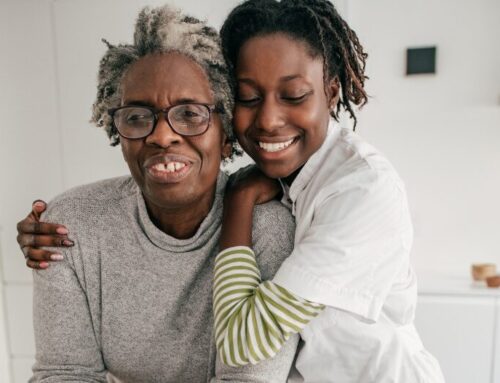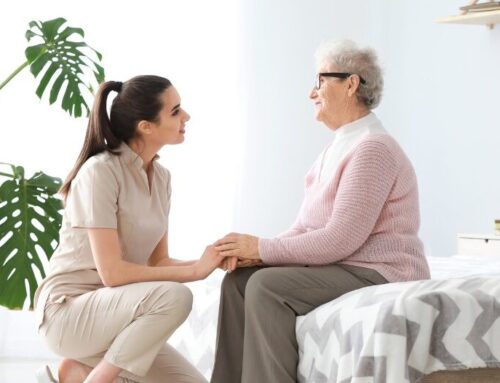Each year, millions of older Americans are admitted to hospitals for reasons such as injurious falls, strokes, and adverse cardiac events. But once that hospital stay is over, those seniors – and their families – are faced with the difficult task of recovering at home. As an informal caregiver, keeping your loved one safe and comfortable during the recovery process isn’t always as easy as it sounds. Here’s how to help that special senior in your life avoid hospital readmission when faced with the challenges of transitioning back home.
Why Do Seniors End Up in the Hospital?
In a typical year, over 800,000 seniors in the U.S. are hospitalized due to falling. Many endure extended hospital stays because of hip fractures, broken bones, and head trauma. Sadly, some lose their freedom and independence permanently as a result.
In addition to falls, older adults often end up spending time in the hospital because of:
- Cardiac arrhythmias
- Congestive heart failure
- Chronic obstructive pulmonary disease (COPD)
- Coronary atherosclerosis
- Diabetes
- Infection
- Medication problems
- Pneumonia
- Stroke
Transitional Care Tips for Family Caregivers
Whether it’s recovering after an operation, a surgery, or a hospital stay, transitioning back home can be an emotionally trying time for patients and their families.
Here’s how to ensure that your loved one gets the transitional care they deserve:
Be patient
Lifestyle adjustments that accompany a recovery can be notably difficult for seniors. As a family caregiver, go in with an open mind, be willing to communicate and listen patiently, and remain as positive as possible. Although your loved one might be angry, frustrated, depressed, or anxious, don’t allow those negative emotions to keep you from giving them the love and support they need.
Involve others
Although the period after a hospital stay can feel like a whirlwind, allow plenty of time to consult with your senior’s doctors, surgeons, and other healthcare specialists. Numerous tasks will need to be managed, like housework, meals, rehab appointments, medication reminders, etc. Develop a schedule based on those needs, and don’t be afraid to involve other trusted family members and friends in the process.
Modify the home
After a hospital stay, your loved one may have difficulty getting around, or they could be experiencing pain, medication side effects, or noticeable changes to their hearing or eyesight. At that point, falling becomes a real possibility. Create a safer home environment by moving furniture out of walking paths, adding more lighting, and installing grab bars in the bathroom.
If they will be using a wheelchair or walker for a while, it might be best to install wheelchair ramps at the front and back entrances. Also, ensure that the pantry and fridge are well stocked and that all your loved one’s health needs are on hand, like hearing aids, vision aids, medications, etc.
Help where you can
For at least the first few weeks, you may be asked to coordinate tasks like home health care visits, doctor’s appointments, therapy sessions, and medication refills. Based on your loved one’s ability to perform activities of daily living (ADLs), you might need to help them with bathing, housekeeping, laundry, food shopping, meals, and other responsibilities. As a caregiver, it’s also imperative that you offer them constant encouragement and emotional support.
Seek outside assistance
Although it’s very gratifying, serving as a primary caregiver during a loved one’s recovery can also be physically and emotionally exhausting. Avoid caregiver burnout by seeking outside assistance from trusted sources like:
- Family members, neighbors, and friends
- Community volunteers that work with the aging
- A meal delivery service
- A professional in-home caregiver
Customized In-Home Transitional Care for Seniors in Naples, FL
Helping an aging loved one transition from hospital to home can be overwhelming when you’re busy or live far away. When you need a hand, contact the caring transitional care professionals at Seaside Home Health Care. Conveniently available in Fort Myers, Punta Gorda, and Naples, FL, our senior care services help to enhance the aging experience by providing practical support at home delivered with a human touch.
Our reliable in-home solutions help aging adults stay engaged in everyday life with tailor-made support to stay safe and well at home. At Seaside Home Health Care, it is always our mission to provide a care plan personalized to your family’s needs – bringing you all comfort, companionship, and peace of mind. To learn more or schedule a time to talk with one of our home care specialists, please visit us at www.seasidehomehealthcare.com.





